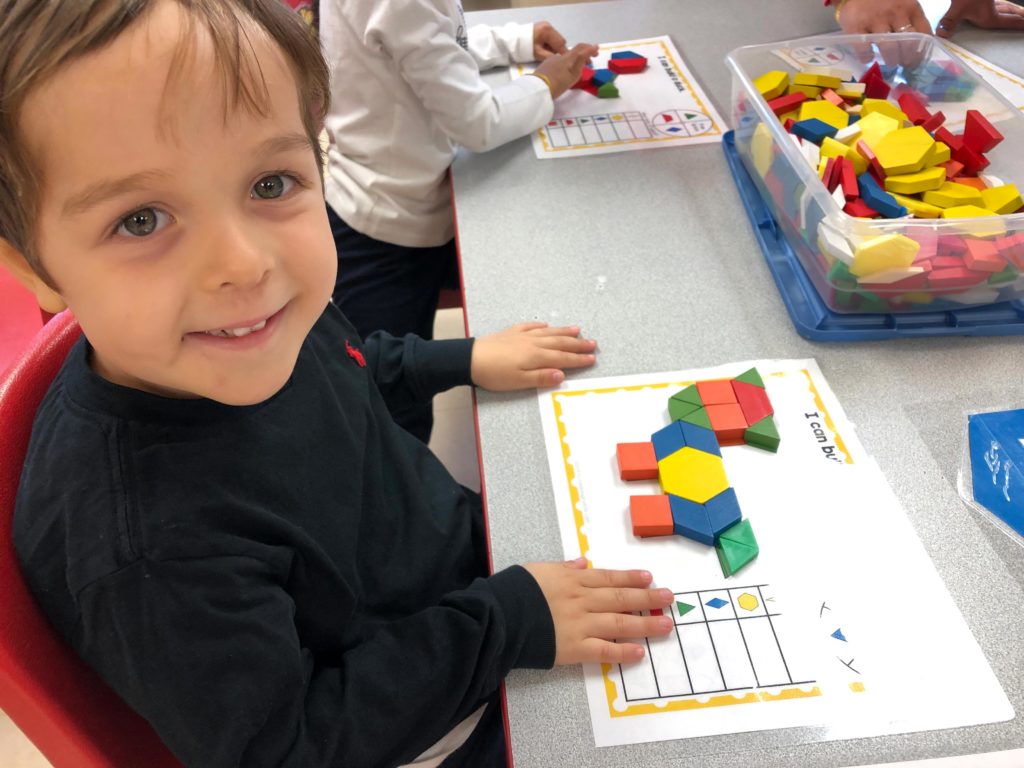
Article written by Karen Holstein, Cedar Hill Prep School Preschool Teacher / Aftercare Director

“I did it!” These are the words of a child who just accomplished something he/she could not do at first. With practice, determination, and encouragement, those words can be spoken.
Children who are given the opportunities to experience tasks that are developmentally attainable can develop confidence and good self-esteem. Instead of a child saying, “I can’t,” encourage your child to say, “I’ll try.” After trying and practicing a task, children will say, “I did it!” This gives them the confidence to conquer another task that they could not do previously.
Here are some tips to encourage confidence and independence in your preschooler:
- Routine
Children love the routine of knowing what to do and what to expect. They feel accomplished when they can do a task on their own without an adult telling them what to do. - Chores
Children love to help. Give them chores or jobs to do that are appropriate for their age. They will feel good about themselves and may want to help even more. - Praise
Praise children when they do things on their own or accomplish a task that they conquered. Everyone likes to hear positive comments. Hearing praise for something that was just accomplished motivates children to attain more. - Everyone makes mistakes
There is not one person who doesn’t make a mistake. Encourage children that it’s okay to make mistakes. Setting the bar too high may cause anxiety if they feel they have to be perfect. - Allow your child the time to learn a task
Give your child the time to practice. If you are in a hurry to get somewhere, that’s not the time to practice something they or you want to accomplish. - Communication
Communicate with your child. Talk with your child about their day. Tell them about your day. Communicate with your child about relevant current events that can be talked about at their level. Communicating with parents may lead to more confidence when speaking in public. - Afterschool Clubs or Extracurricular Activities
Enroll your child in an afterschool extracurricular activity. Learning a sport, an instrument, or artistic activity may encourage a new strength that your child can learn and be successful at. - Conflict resolution
Teach your child how to respond in certain situations while playing with peers. Instead of grabbing, hitting, or tattling, encourage your child to use their words to resolve the situation (ex. Can I have that when you are done?) instead of just grabbing. Encourage your child to use words like please, thank you, excuse me.
Keep tasks developmentally appropriate for their age. Taking little steps to achieve their goals can give children a better sense of accomplishment. By following these tips, you are helping your child to feel loved, secure in their environment, and happy.





